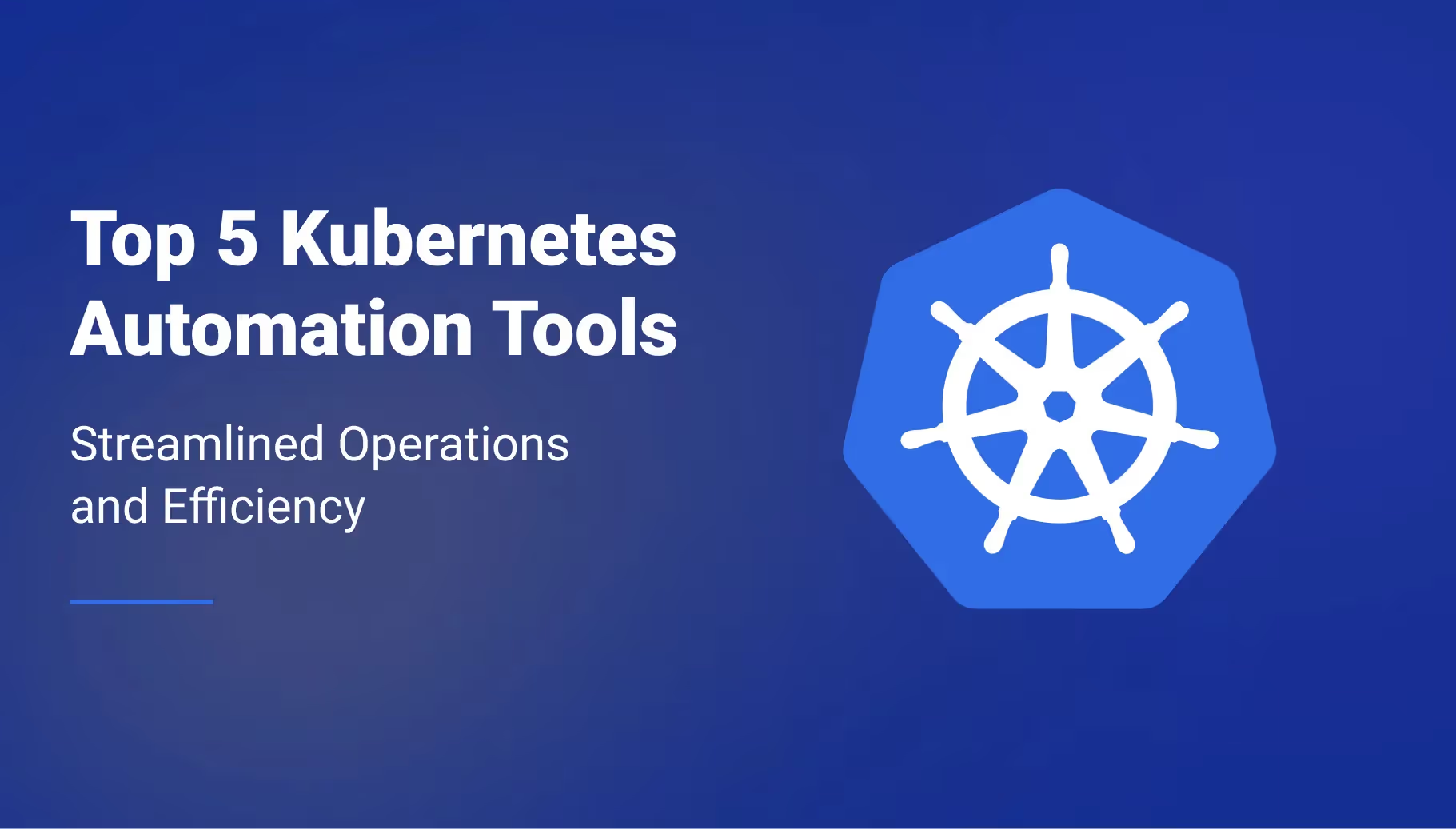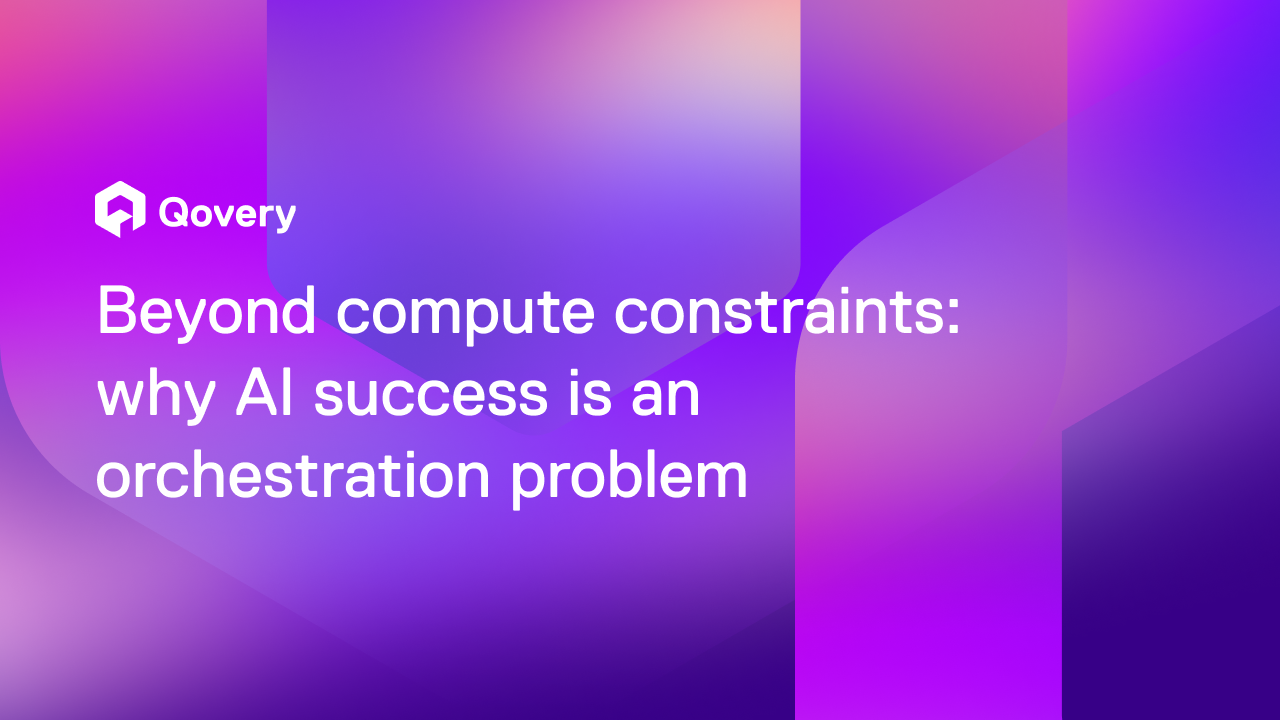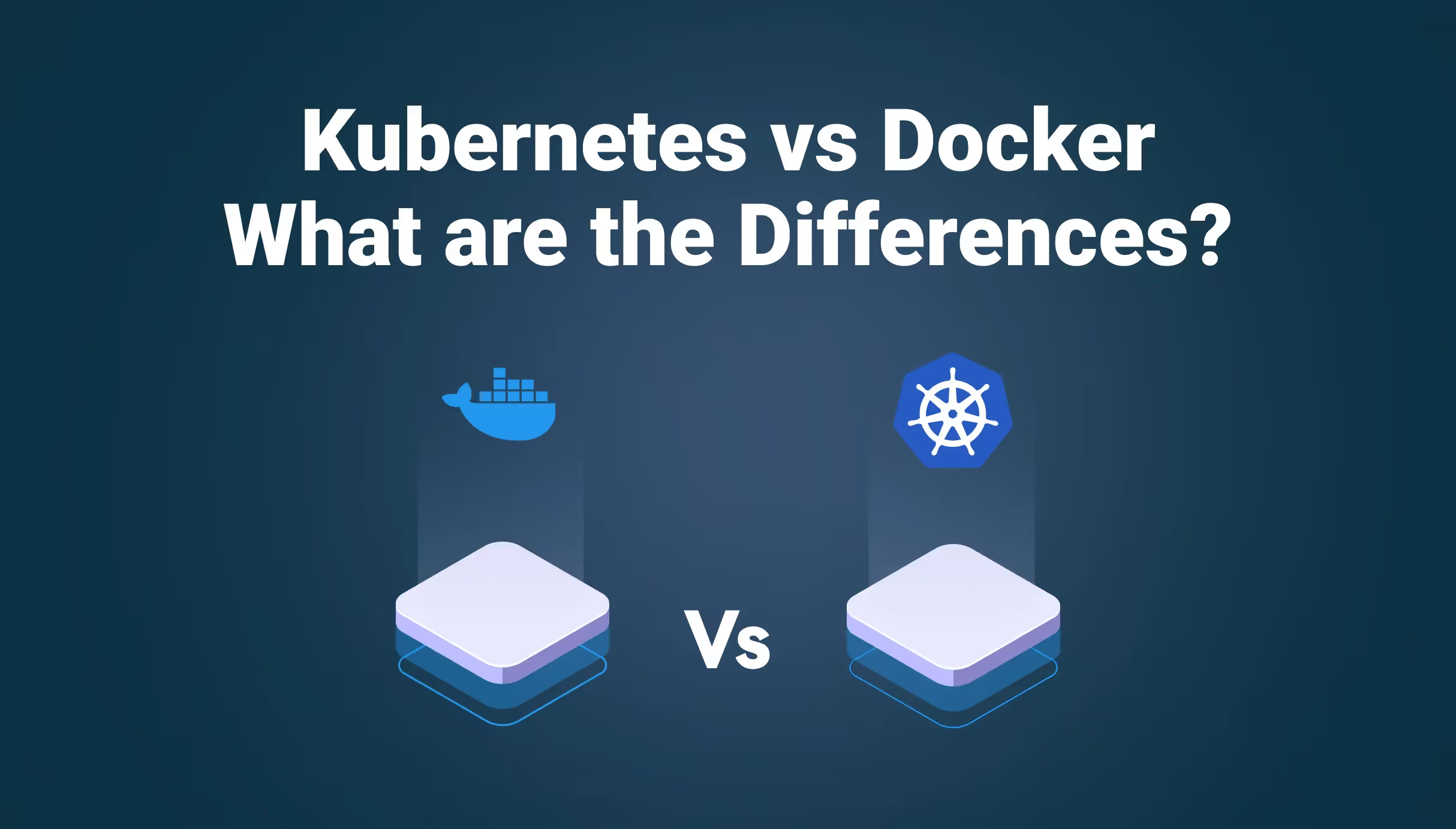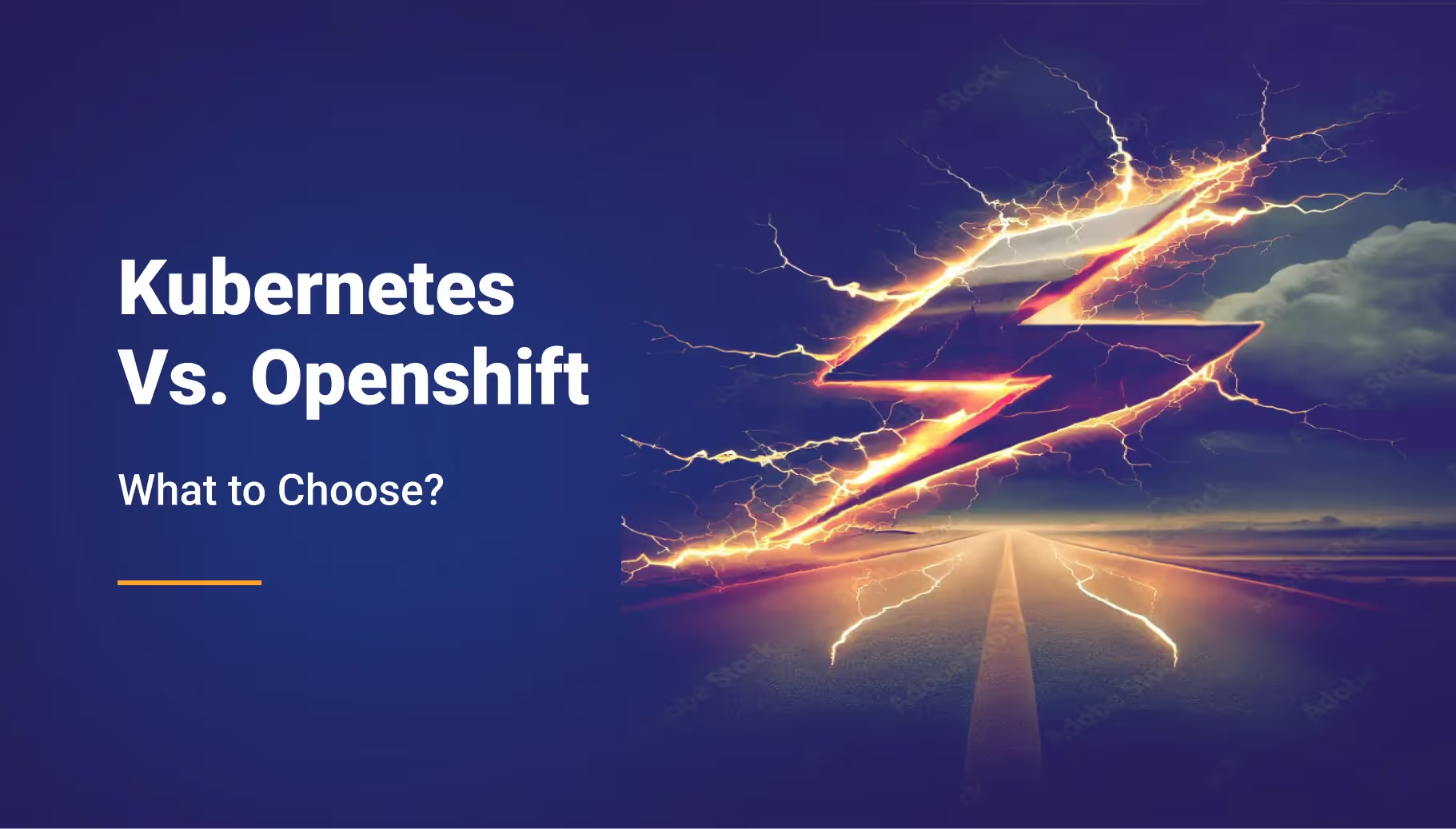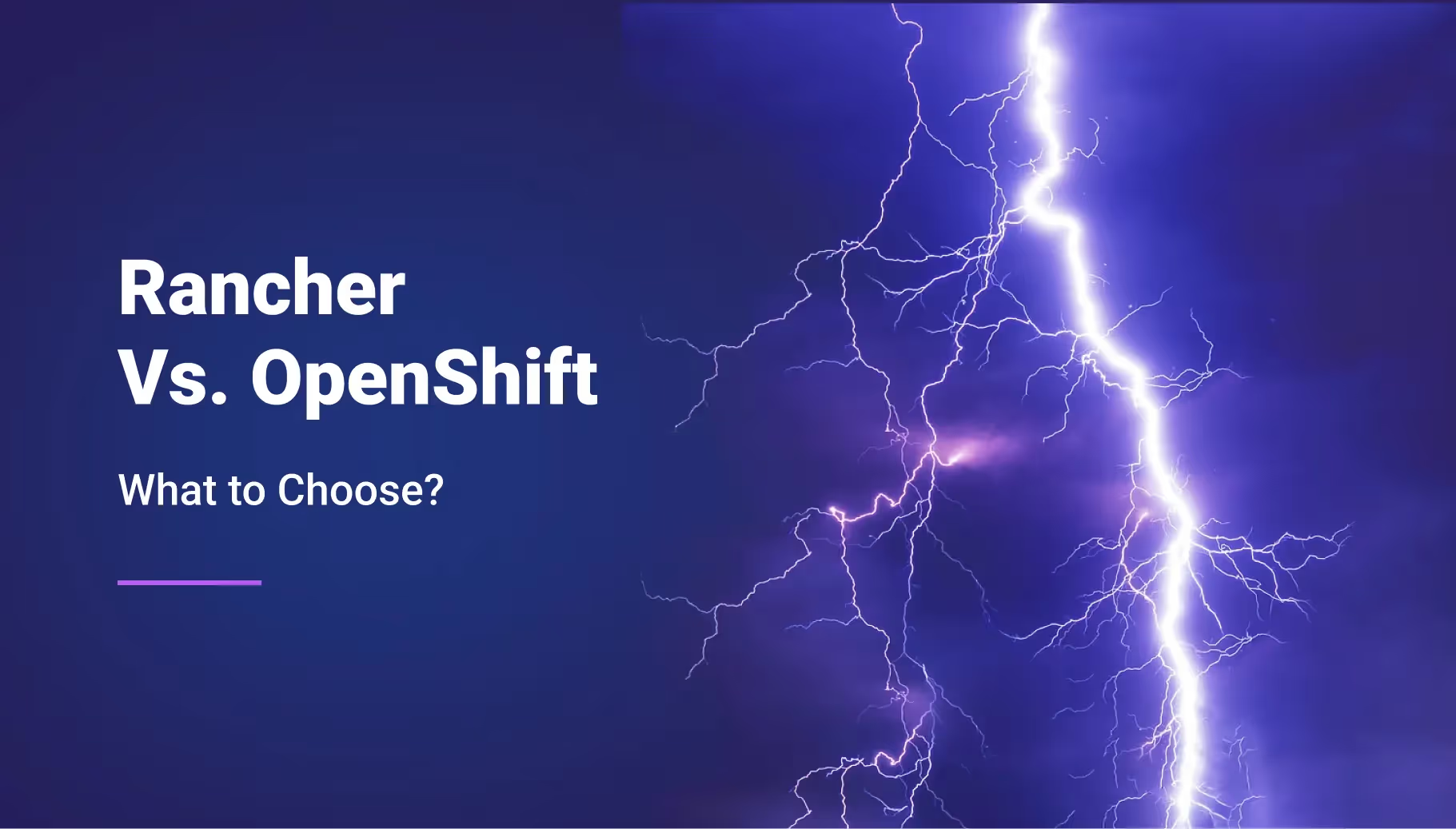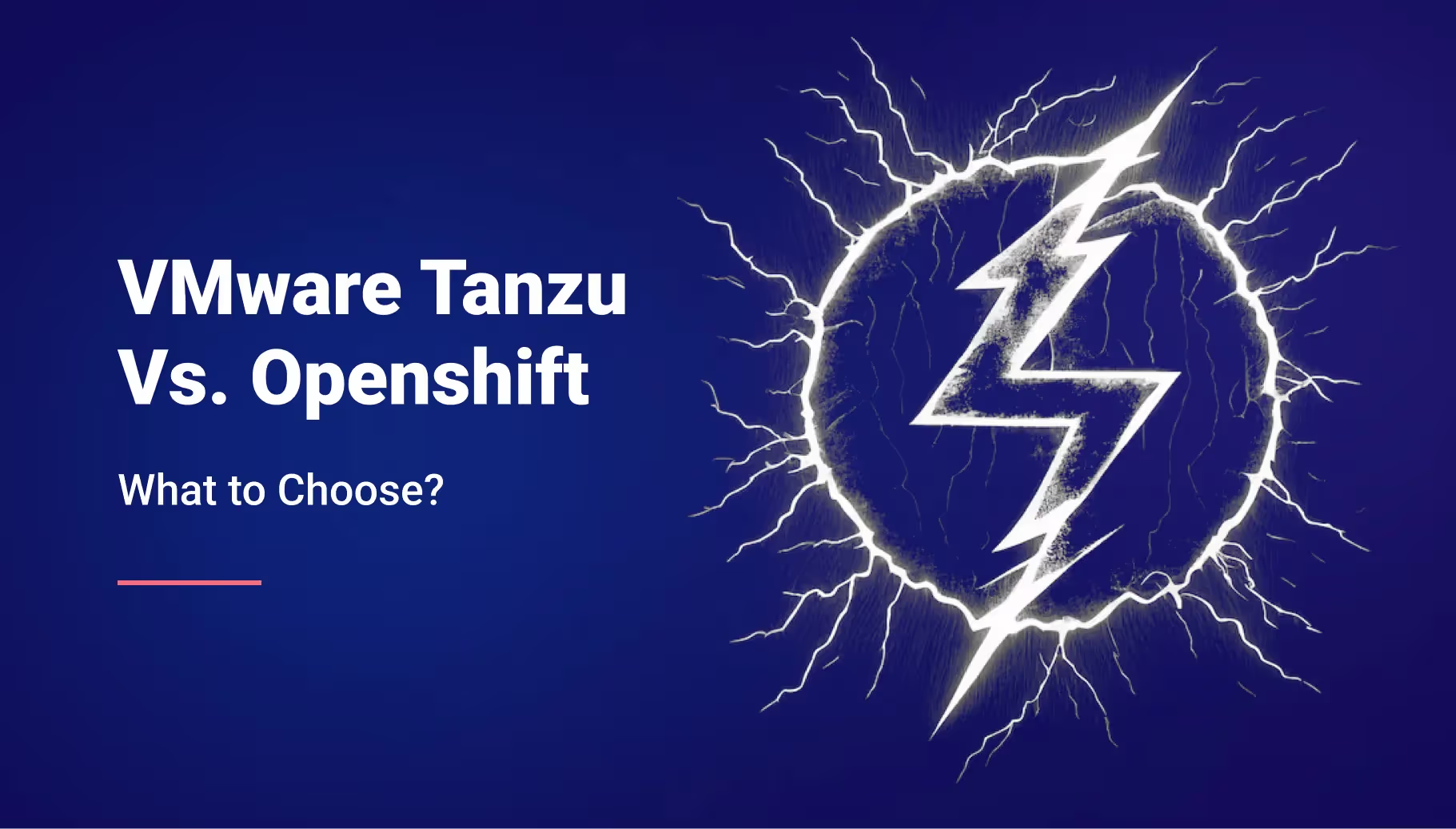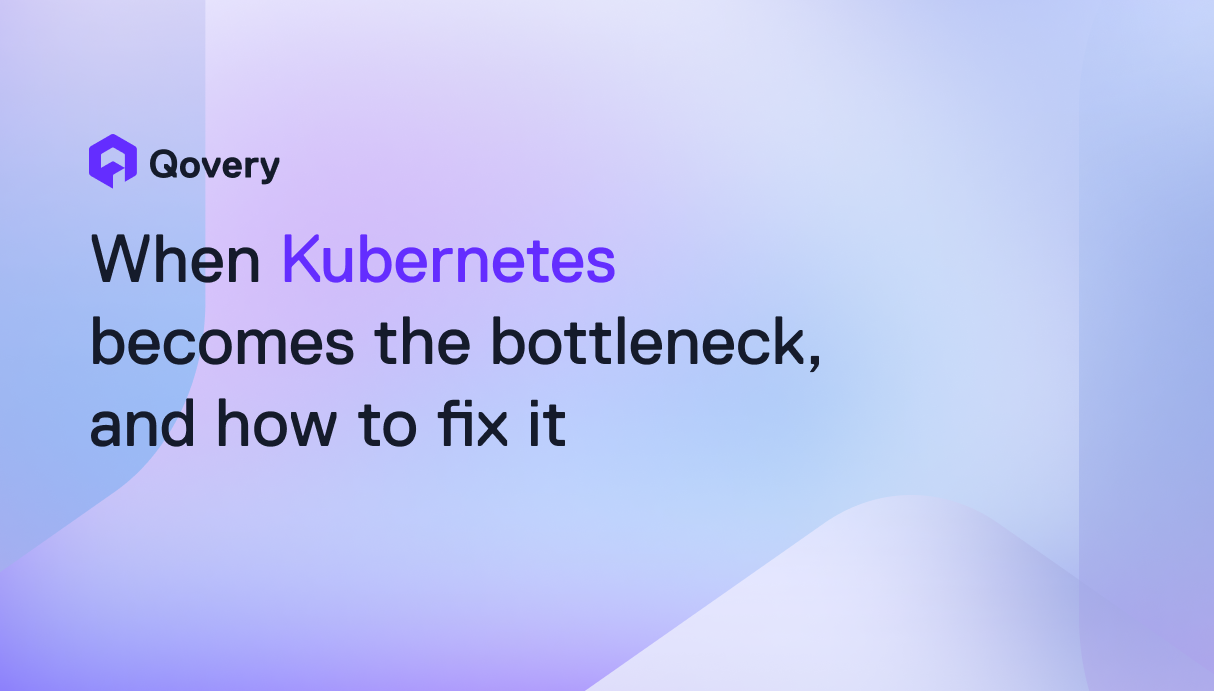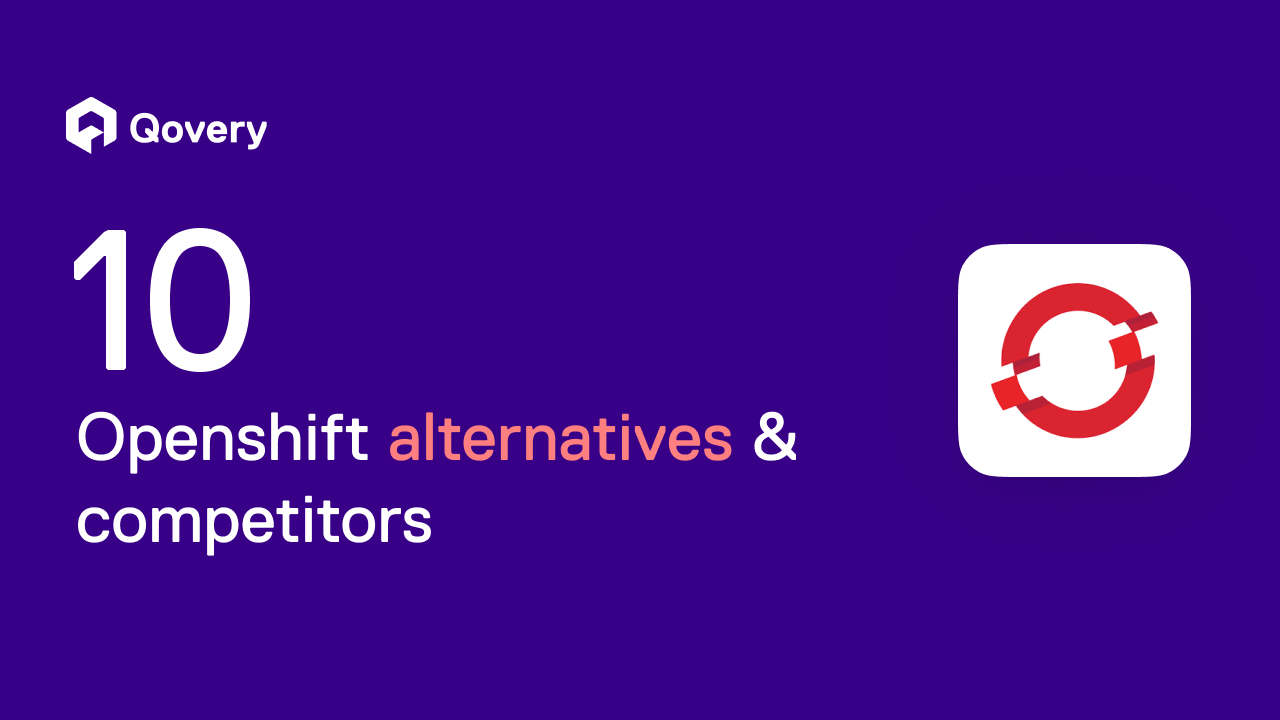

The Top 10 Open-Source Products From KubeCon North America 2022



The Qovery team also attended this event and shared their flagship product with other participants. They joined hands with other tech-oriented companies to share their experience and discuss the latest trends in the cloud world. Today, we will share with you the top ten open-source products from KubeCon 2022. Let’s start with none other than Kubernetes.
Kubernetes - The Most Successful Containers Orchestrator
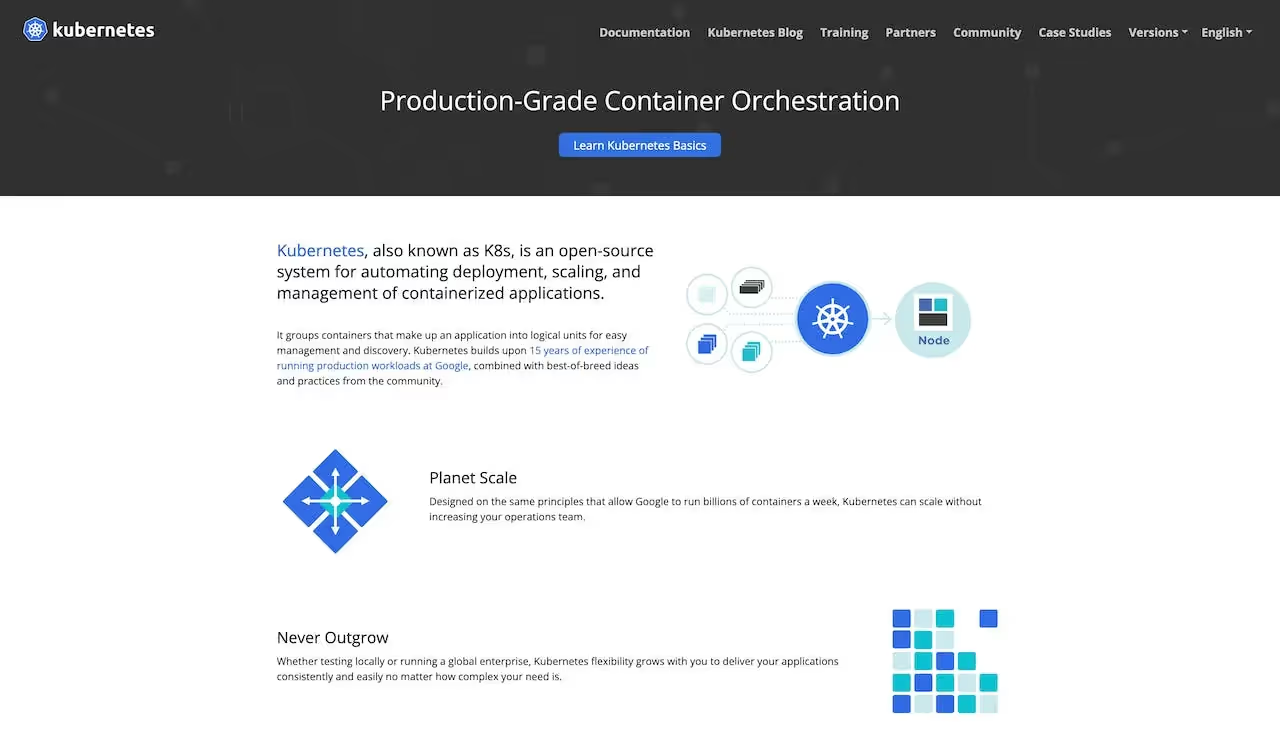
Kubernetes is the #1 container orchestration platform through which you can automate many manual processes related to the deployment, scalability, and security of containerized applications. Kubernetes clusters can span public, private, or hybrid Clouds and serve as an ideal platform for deploying cloud-native applications. Kubernetes provides a built-in mechanism for scaling, fault tolerance, and state management.
Some of its powerful features include auto-scaling, self-healing, load balancing, life cycle management, and persistent storage. Organizations adopt Kubernetes to manage their IT workloads efficiently, including reduced IT expenses, improved scalability, optimized application development workflow, and many more.
KubeCost - Monitor Kubernetes Spend
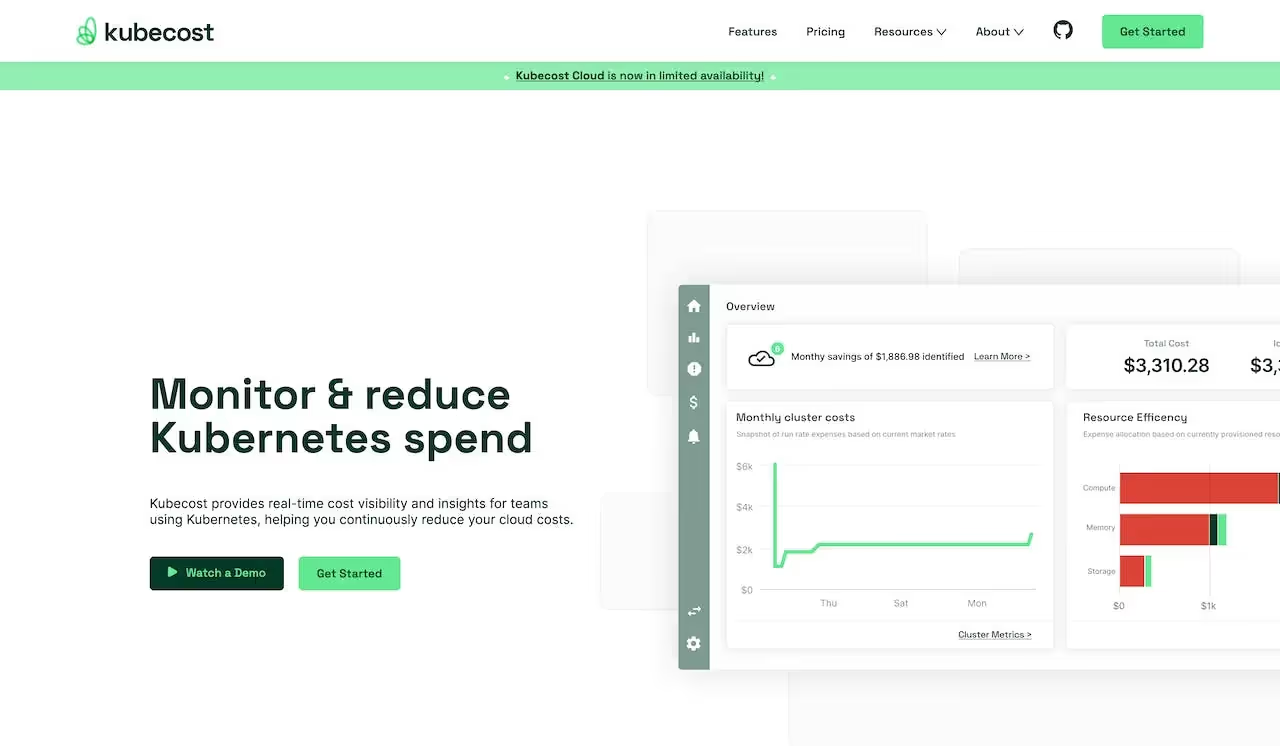
Organizations utilizing Kubernetes often struggle to keep track of the cost incurred on the Kubernetes solution. Kubernetes is a complex system consisting of native components, add-ons, and infrastructure elements, that makes it difficult to identify and evaluate ongoing and expected costs. KubeCost is the answer to this problem. Using KubeCost, you can monitor and manage both cost and capacity in your Kubernetes environment.
KubeCost provides real-time cost insights that help you identify the overspending and underspending, eventually leading to cost reduction by taking cost-cutting measures at the right time. Some of the essential features of KubeCost include optimization insights, proactive alerts, unified cost monitoring, etc.
Replibyte - Seed Your Development Database With Production Data
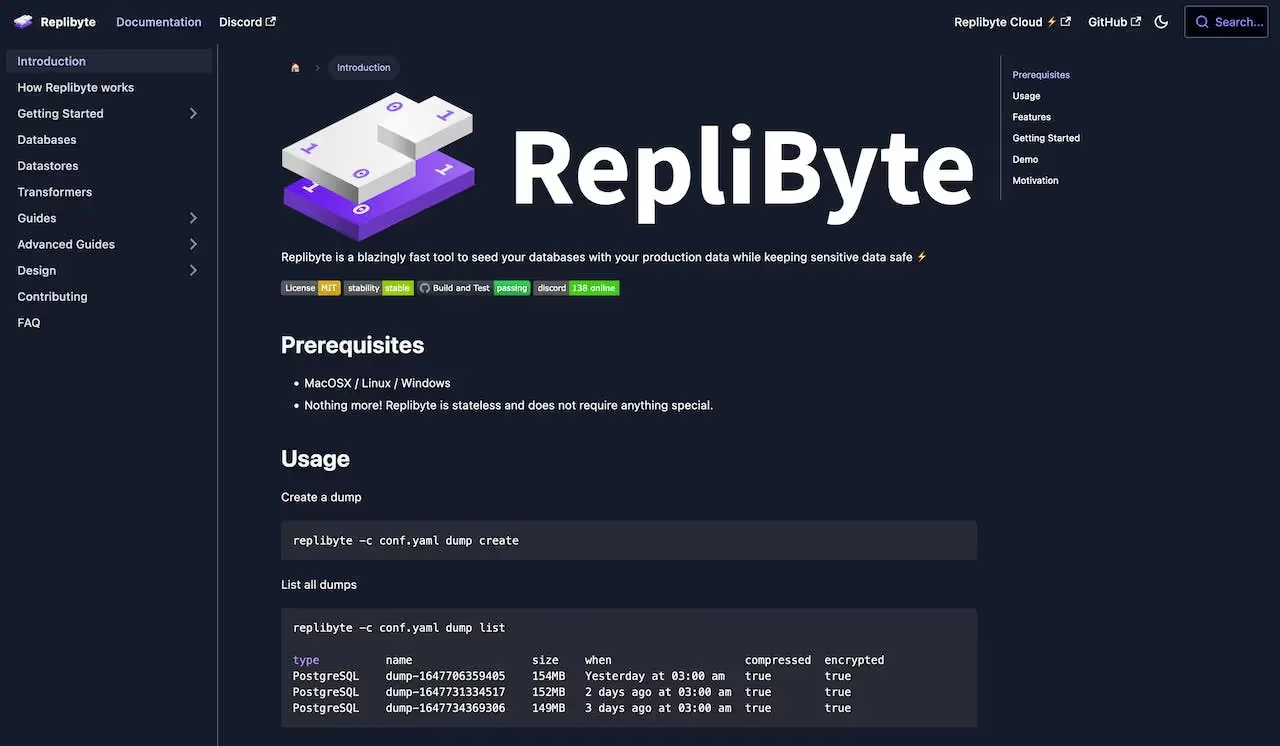
Developers often face challenges seeding the development database with valuable data from the production environment. Replibyte solves this problem. It is an open-source tool to seed your databases with your production data while keeping your sensitive data safe. It supports Windows, Linux, and macOS. You can use it to seed your PostgreSQL, MongoDB, and MySQL databases.
Replibyte allows you to generate fake information for compliance reasons. You can use it even on enterprise-level large databases with TB’s of data. It supports data synchronization across different VPCs (or networks). You can retrieve the data not just from the database directly but from an existing backup as well.
ArgoCD - Declarative CD Platform for Kubernetes
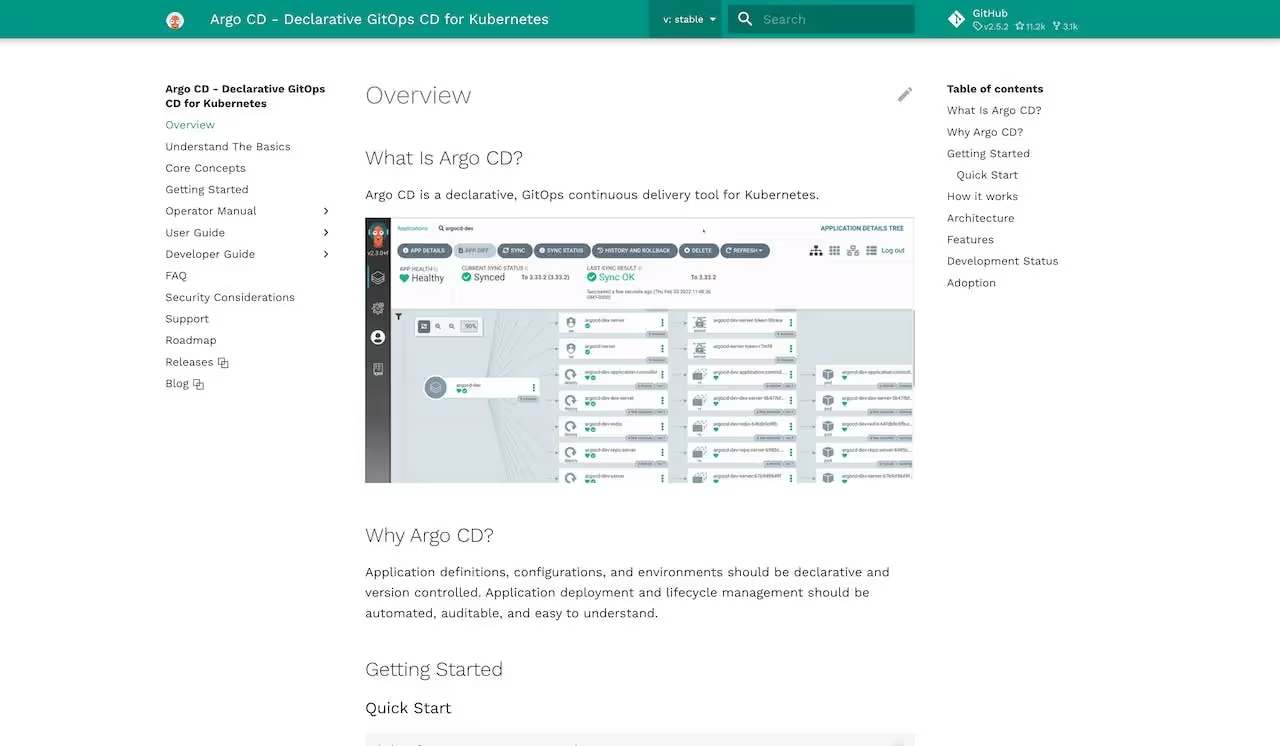
Combine Kubernetes with GitOps, and you will get AgroCD. AgroCD is a Kubernetes native tool for continuous deployment. Traditional CD tools only support push-based deployment. AgroCD, on the other hand, can pull the latest code from the Git repository and directly deploy it to your Kubernetes. Through AgroCD, developers can manage both infrastructure configuration and application updates from one place.
AgroCD comes with a handy CLI and a user-friendly web interface. It supports RBAC in multi-cluster and allows you to implement SSO through all the major providers like GitHub, Oauth2, Gitlab, etc. Its powerful dashboards allow you to visualize, identify and resolve different configuration and deployment issues.
MinIO - Performant Kubernetes Object Storage
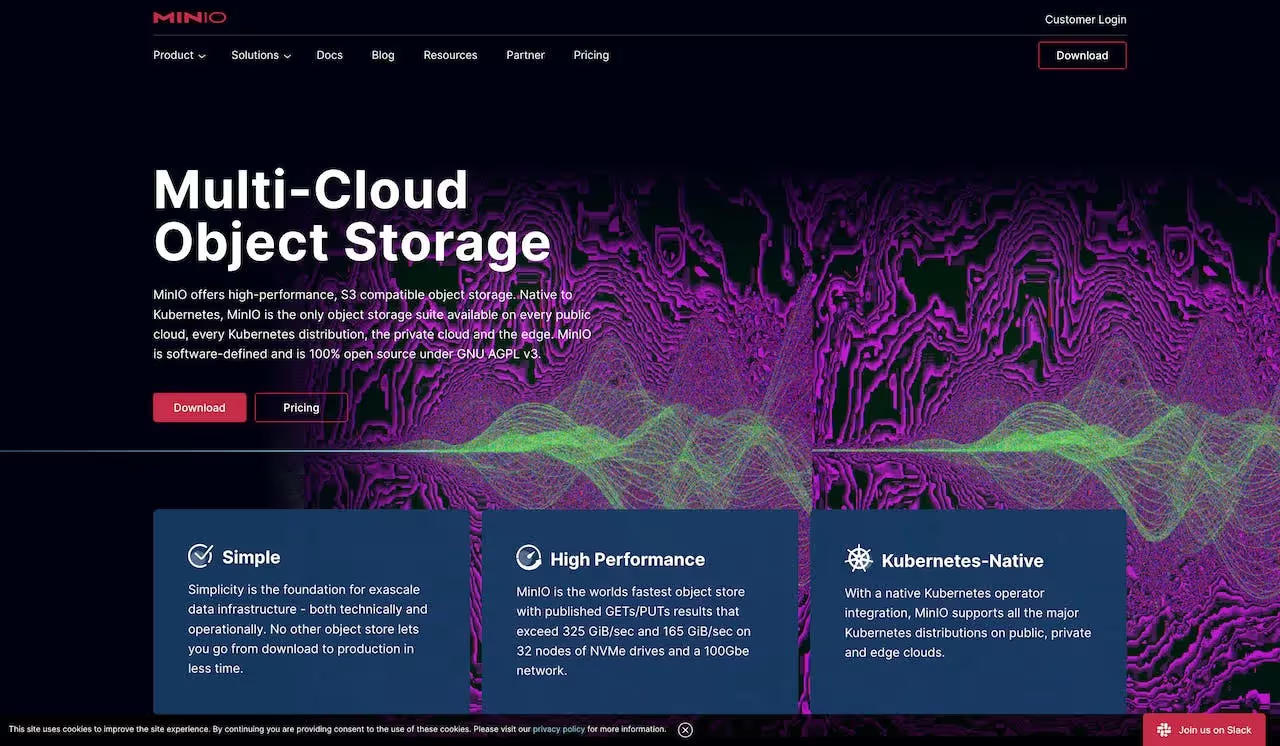
MinIO is a high-performant Kubernetes native object storage. It is very secure, scalable, and resilient object storage which is incredibly simple to deploy and manage at scale. It is currently the only object storage that is available on every public cloud, private cloud, all Kubernetes distributions, and even edge computing. MinIO is compliant with S3.
MinIO is equipped with enterprise features like high availability, data redundancy, vertical and horizontal scaling, strong data security, support for multiple pluggable storage backends, etc.
TiKV - Distributed Key-Value Store
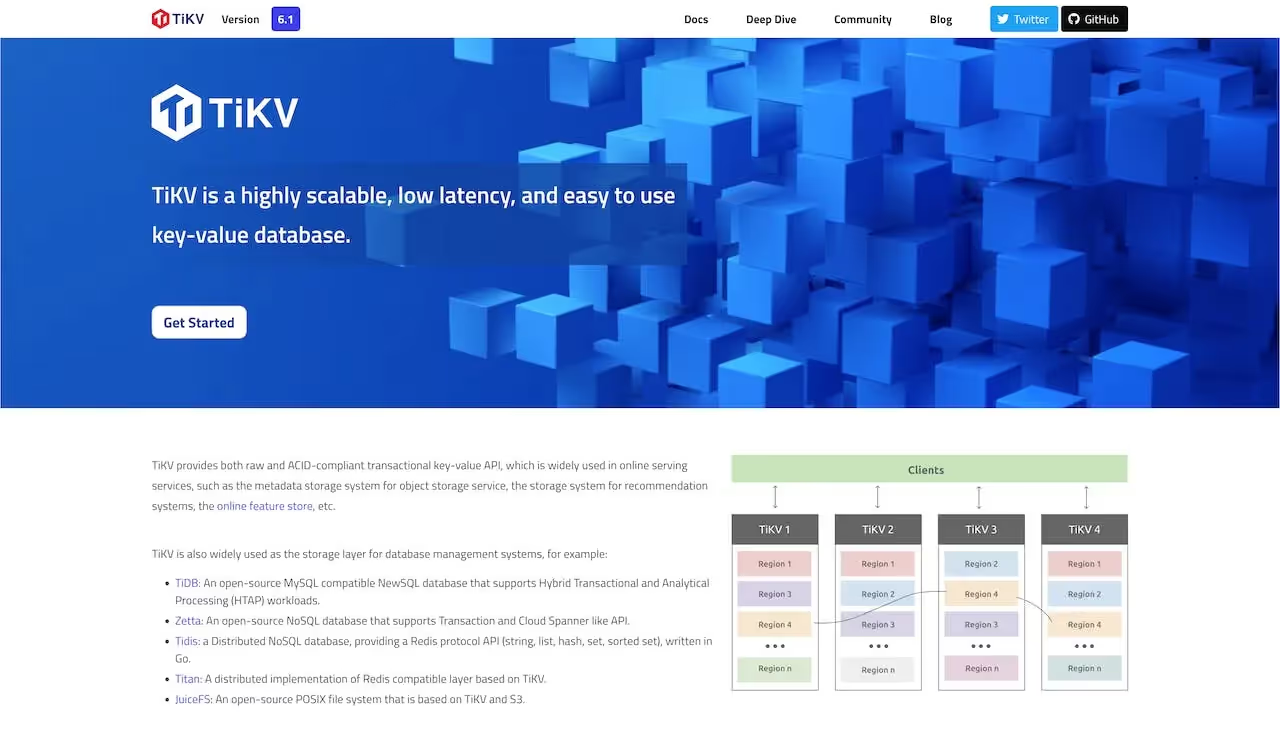
TiKV (where Ti stands for titanium) is a distributed and transactional key-value store. Traditional No-SQL systems only provide classical key-value APIs, but TiKV also provides transactional APIs with ACID compliance. TiKV has powerful features like low latency, high scalability, geo-replication, consistently distributed transactions, etc. At the same time, it is extremely easy to use and maintain.
TiKV features strong consistency and partition tolerance, and you can use it either as the storage engine for TiDB database or an independent transactional key-value data store. You can use KiTV in online serving services and as a data store for recommendation systems.
LinkerD - Kubernetes Service Mesh
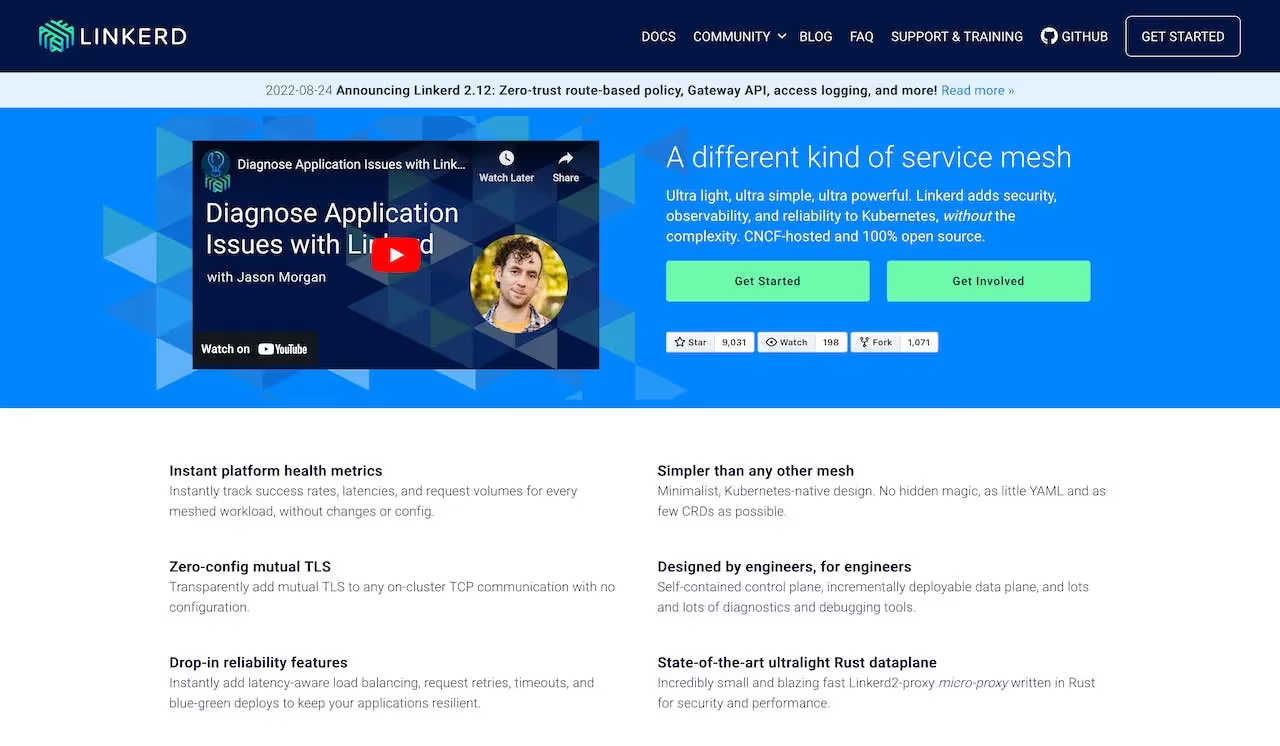
With the rise of microservices-based applications, a reliable and efficient service mesh is inevitable for containerized workloads. Service mesh is the layer that makes inter-communication among different microservices possible. LinkerD is market leading service mesh providing highly efficient service mesh for Kubernetes. It is the only service mesh hosted on CNCF, which is the organization managing Kubernetes and other cloud-native tools.
LinkerD provides valuable features like zero-config mutual TLS, instant platform health metrics, blazing fast rust dataplane, and many more. It is also much simpler to use due to its minimalistic Kubernetes native design, very little YAML, and few CDRs.
Vitess - MySQL Horizontal Scaling on Kubernetes
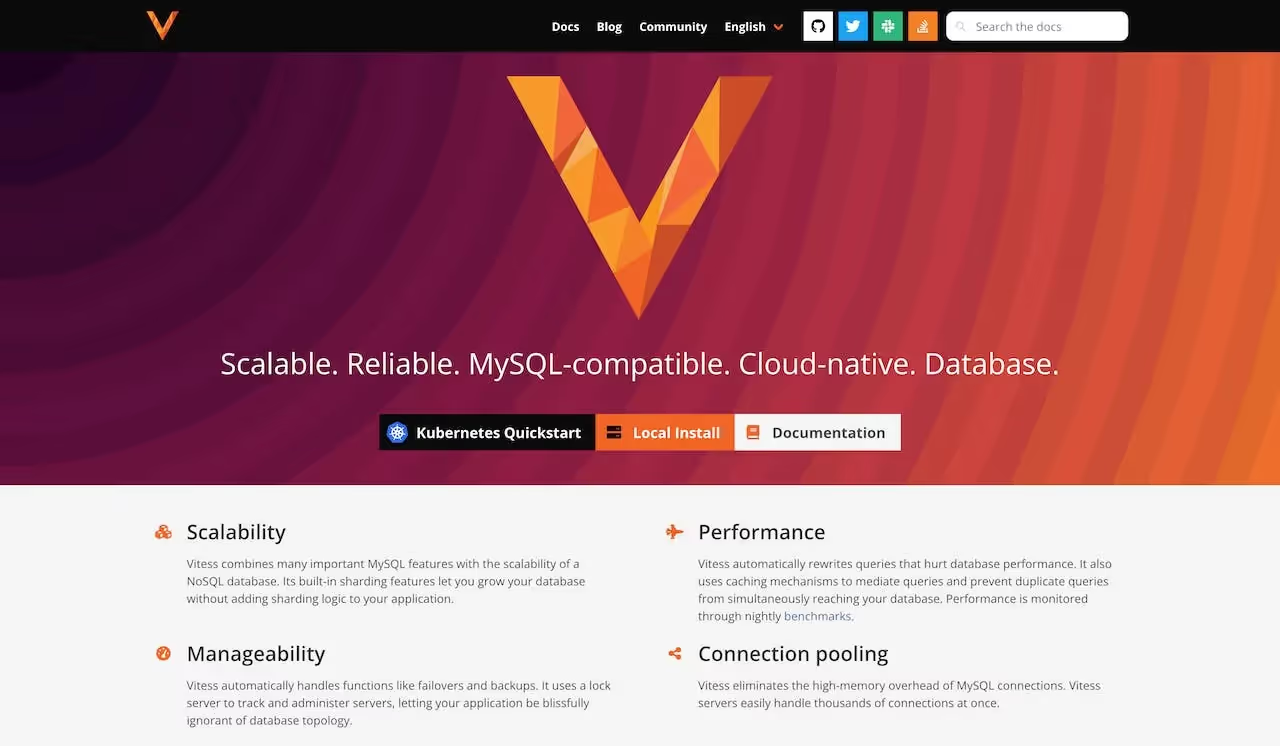
Vitess is a database clustering tool for MySQL, Percona, and MariaDB horizontal scaling. It is ideally suited for running MySQL databases in Kubernetes. You can use Vitess on private and public clouds and even on dedicated hardware. Top companies like Slack, Square, JD.com, and others use Vitess to store their business data.
Vitess has strong features like materialized views, online schema migrations, high availability, horizontally scalable, shard management, etc. Vitess combines the powerful features of standard SQL with the scalability of NoSQL databases.
Backstage - Developer Portal
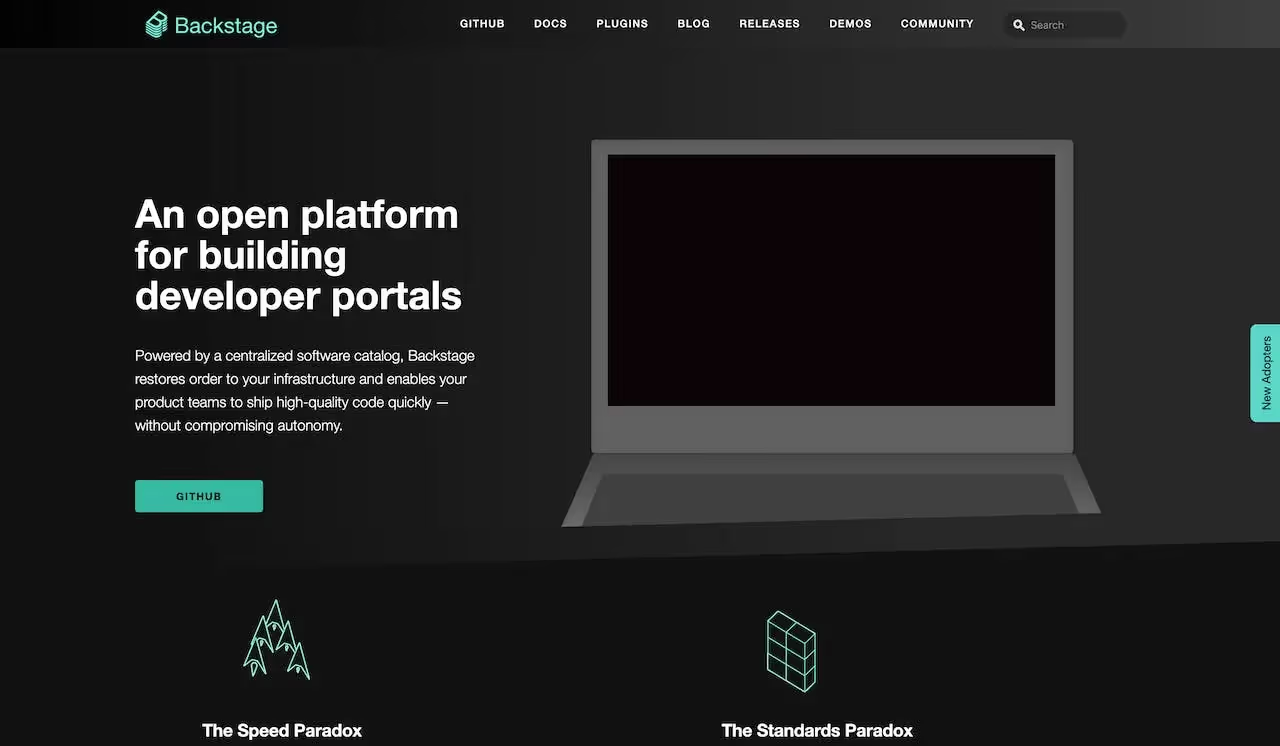
Backstage is an open-source developer portal platform. A developer portal is an internal platform for developers to learn and use their services, tools, and documentation. Backstage is created by Spotify and donated to CNCF. It aims to reduce the complexity by allowing developers to discover and utilize all the services, frameworks, tools, and documentation from one central platform.
The three core features of Backstage are:
- Software catalog (To manage your services, tools, libraries, etc. )
- TechDocs (To create, maintain, and discover the technical documentation)
- Software templates (To spin up new projects quickly)
Backstage provides a unified, consistent experience that ties all your tools, services, docs, and owners together in one place.
Kyverno - Policy Management for Kubernetes
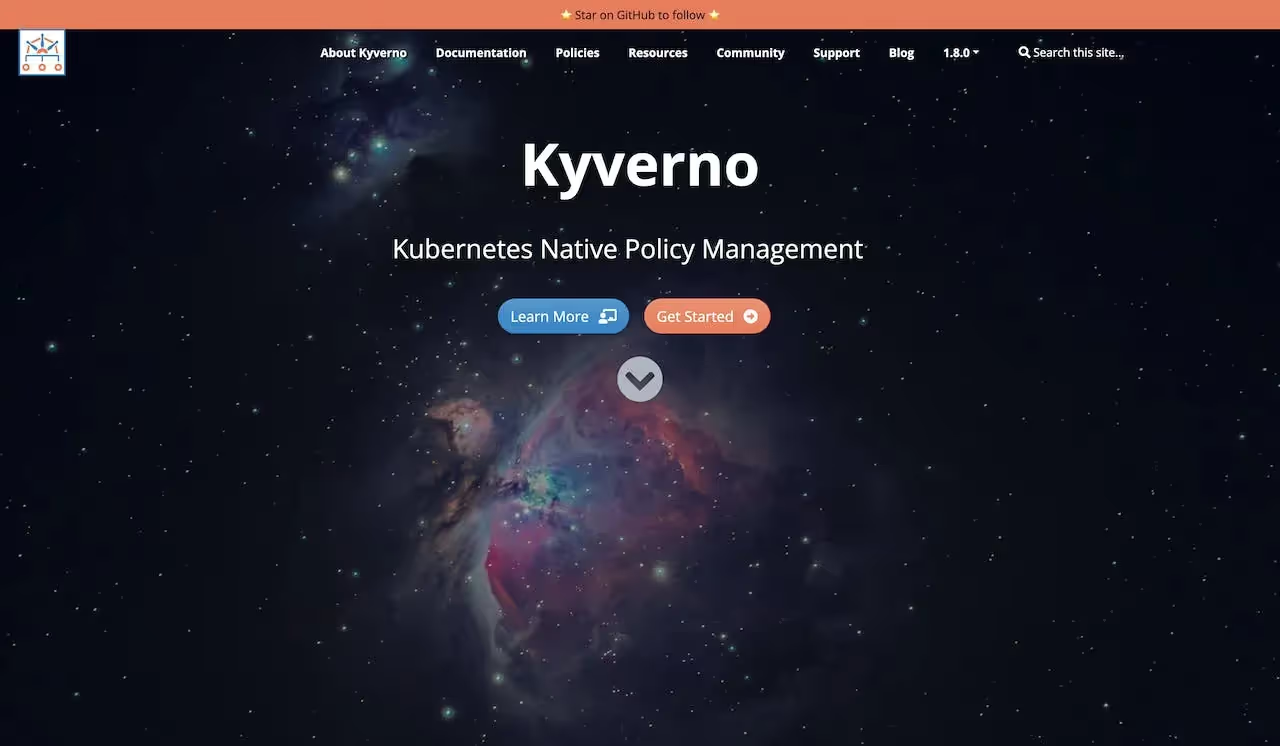
Kyverno is a Kubernetes native policy engine that helps you define policies through Kubernetes manifests. Using Kyverno, you can manage policies as Kubernetes resources; that way, you can take advantage of Kubernetes tools like Kubectl and Kustomize to manage policies.
Kyverno is a powerful policy-as-code tool through which you can enforce the best practices at the organizational level. Being Kubernetes native, it is easy to write and manage the policies, and you do not need specialized developers to maintain them.
Wrapping Up
KubecCon is the blockbuster event hosted by CNCF. Organizations that are successfully delivering industrial-strength cloud-native applications attend this event. Innovative ideas and breakthrough applications are presented here. This article discussed the top ten open-source applications from KubeCon 2022. Some of the products that are revolutionizing the cloud industry include Backstage, LinkerD, MinIO, RepliByte, and many others.

Suggested articles
.webp)



.svg)
.svg)
.svg)
